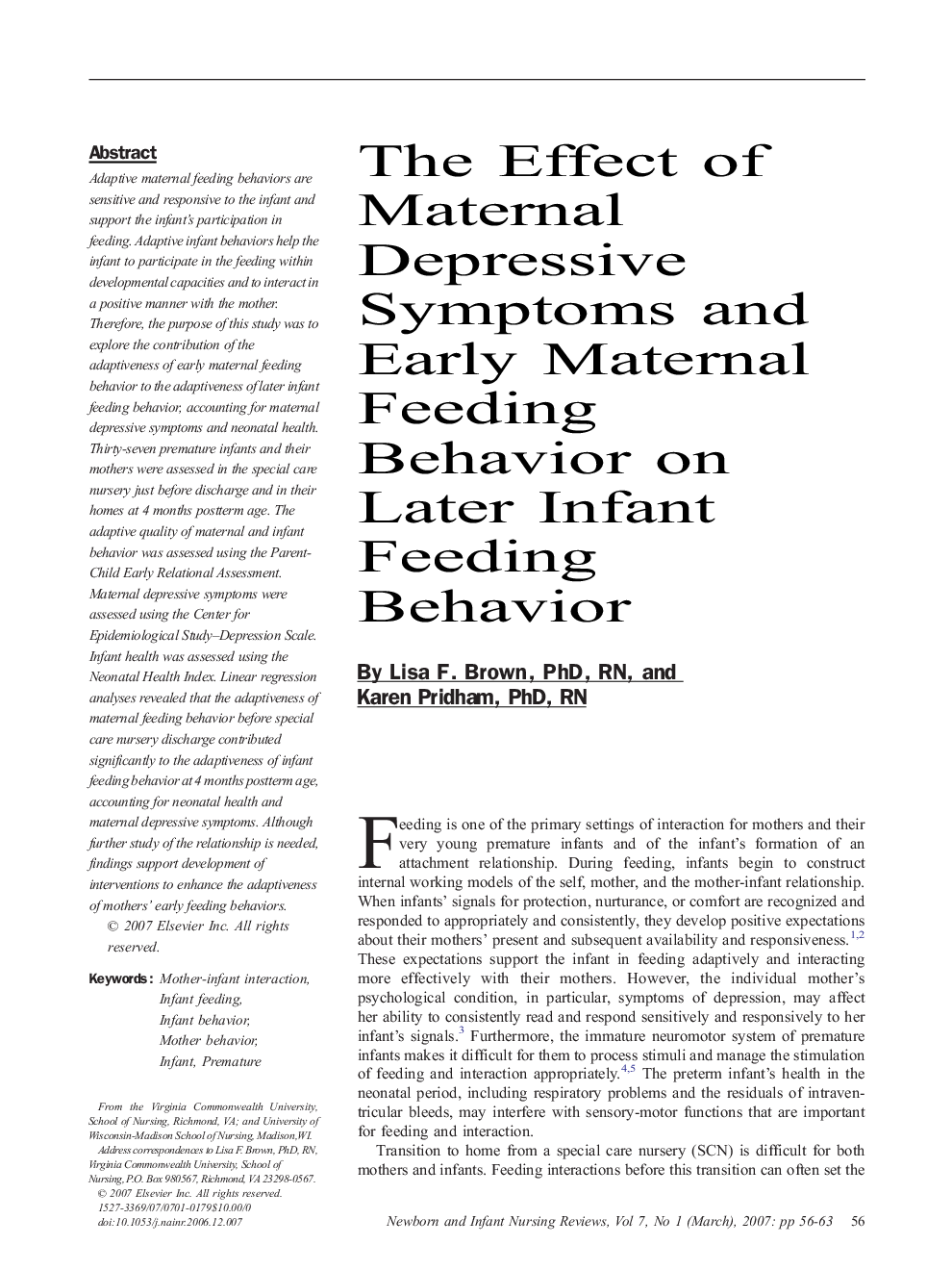| Article ID | Journal | Published Year | Pages | File Type |
|---|---|---|---|---|
| 2671443 | Newborn and Infant Nursing Reviews | 2007 | 8 Pages |
Adaptive maternal feeding behaviors are sensitive and responsive to the infant and support the infant's participation in feeding. Adaptive infant behaviors help the infant to participate in the feeding within developmental capacities and to interact in a positive manner with the mother. Therefore, the purpose of this study was to explore the contribution of the adaptiveness of early maternal feeding behavior to the adaptiveness of later infant feeding behavior, accounting for maternal depressive symptoms and neonatal health. Thirty-seven premature infants and their mothers were assessed in the special care nursery just before discharge and in their homes at 4 months postterm age. The adaptive quality of maternal and infant behavior was assessed using the Parent-Child Early Relational Assessment. Maternal depressive symptoms were assessed using the Center for Epidemiological Study–Depression Scale. Infant health was assessed using the Neonatal Health Index. Linear regression analyses revealed that the adaptiveness of maternal feeding behavior before special care nursery discharge contributed significantly to the adaptiveness of infant feeding behavior at 4 months postterm age, accounting for neonatal health and maternal depressive symptoms. Although further study of the relationship is needed, findings support development of interventions to enhance the adaptiveness of mothers' early feeding behaviors.
